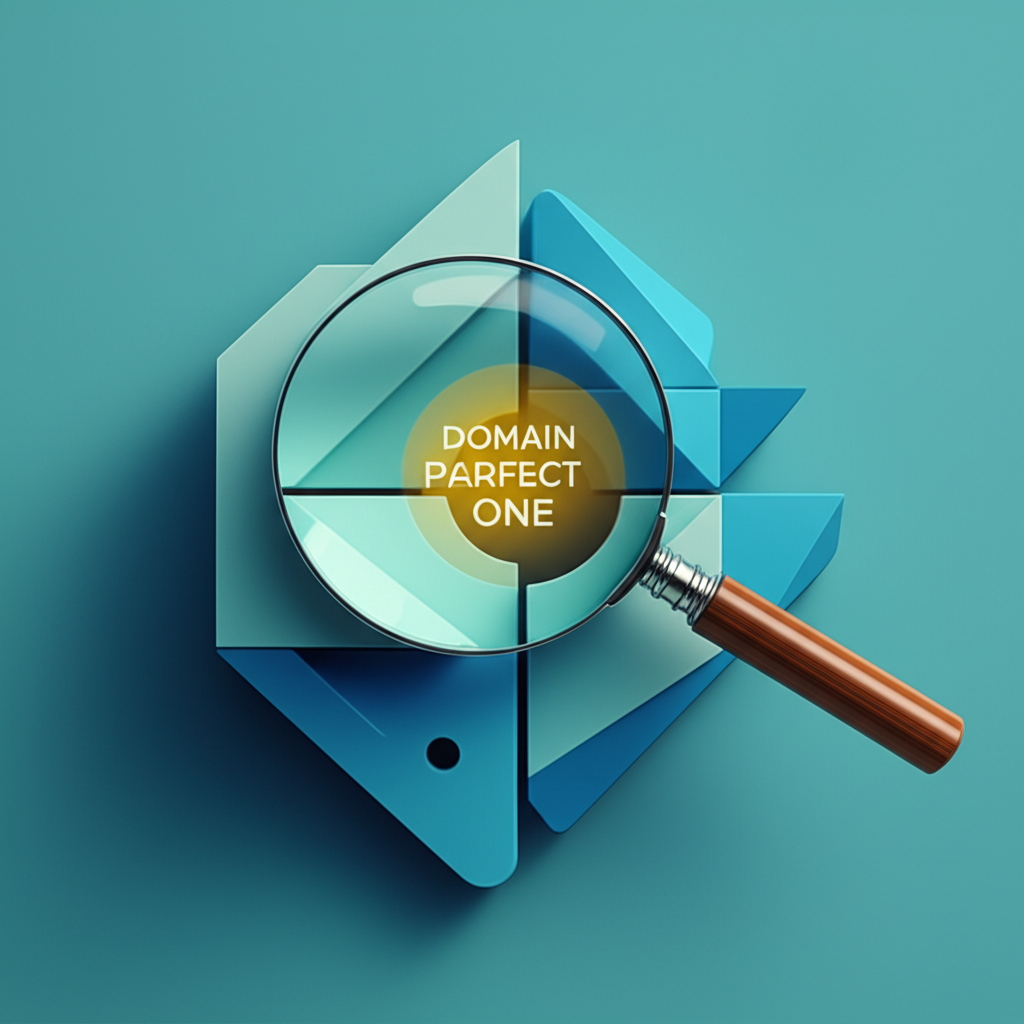- Why are Domain Names so Important?
- The Art of Picking the Right Domain Names
- Relevance to Your Business or Brand
- Keep it Short, Memorable, and Easy to Spell
- Choose the Right Domain Extension
- Domain Name Availability Check
- Domain Names: Avoiding Common Pitfalls
- Registering Your Domain Name: Next Steps
Domain Names: Choosing the Perfect One (Effortless Guide)
Domain names are the digital addresses of your website, the gateway through which users find your online presence. Choosing the right domain name is a critical step in establishing your online identity, impacting your brand recognition, search engine optimization (SEO), and overall success. This effortless guide will navigate you through the process of selecting a domain name that perfectly aligns with your business goals and resonates with your target audience.
Why are Domain Names so Important?

A well-chosen domain name offers numerous benefits:
First Impressions Matter: Your domain name is often the first interaction a potential customer has with your brand. A memorable and relevant domain name can create a positive first impression and build trust.
Branding and Recognition: A strong domain name reinforces your brand identity and makes it easier for customers to remember and share your website.
SEO Benefits: While exact match domains (domains containing the exact keyword) are no longer the SEO silver bullet they once were, a relevant domain name can still contribute to better search engine rankings. It provides context for search engines about your website’s content.
Credibility and Professionalism: Owning a professional-looking domain name instantly boosts your credibility and portrays a sense of professionalism. It assures visitors they’ve reached a legitimate site.
Email Marketing: Using a custom domain name for your email addresses (e.g., info@yourdomain.com) looks much more professional than generic email addresses and enhances your brand image.
The Art of Picking the Right Domain Names
Choosing the perfect domain name requires careful consideration of several factors:
Relevance to Your Business or Brand
Your domain name should clearly reflect the nature of your business or website. If you sell handmade jewelry, a domain name related to jewelry making or crafting would be appropriate. Avoid generic names that don’t provide any clues about what your site offers.
Keep it Short, Memorable, and Easy to Spell
Shorter domain names are easier to remember and type correctly. Avoid using hyphens or numbers, as they can be confusing and make it more challenging for people to find your website. Aim for a domain name that is easy to spell and pronounce, minimizing the risk of users misspelling it and ending up on a different site.
Choose the Right Domain Extension
The domain extension, also known as the top-level domain (TLD), is the part of the domain name that comes after the dot (e.g., .com, .org, .net). While .com remains the most popular and widely recognized TLD, other options might be more suitable depending on your business. Consider using .org for non-profit organizations, .net for technology-related businesses, or country-specific TLDs (e.g., .co.uk, .ca) if you target a specific geographic location.
Domain Name Availability Check
Before settling on a domain name, check its availability. Numerous domain registrars offer tools to check if a specific domain name is already registered. If your preferred domain name is taken, consider variations or alternative TLDs. Be prepared to explore several options until you find one that is both available and suitable for your needs.
Domain Names: Avoiding Common Pitfalls
When choosing a domain name, try to avoid these common mistakes:
Using Trademarked Names: Avoid using brand names or trademarks that you don’t own. This can lead to legal issues and force you to change your domain name later.
Overusing Keywords: While a relevant domain name is beneficial for SEO, stuffing it with too many keywords can make it look spammy and unprofessional. Keep it concise and natural.
Ignoring Mobile Friendliness: Consider how your domain name will look on smaller screens like smartphones. Avoid overly long or complex names that are difficult to read on mobile devices.
* Not Checking Social Media Handles: Ideally, your domain name and social media handles should be consistent. Check if your desired name is available on social media platforms to maintain brand consistency.
Registering Your Domain Name: Next Steps
Once you’ve found the perfect domain name, register it through a reputable domain registrar. Compare pricing and features offered by different registrars before making a decision. Consider factors such as privacy protection, domain management tools, and customer support. Following registration, point your domain name to your web hosting server to make your website accessible online.
Choosing the right domain name is a crucial investment for your online presence. By following this guide and carefully considering the factors discussed, you can select a domain name that sets you up for success, elevates your brand, and attracts your target audience. Don’t rush the process; take the time to research, brainstorm, and ultimately choose a domain name that will serve you well for years to come.















Leave a Reply